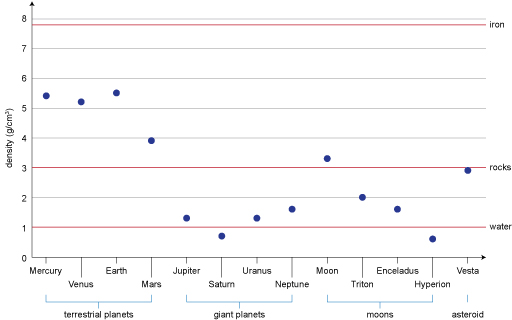4.7 Densities of Solar System planets
The planets in the Solar System all have different compositions, and this affects their densities.
In general, terrestrial (rocky) planets are denser than the gas and ice giants. Earth has a density of around 5.5 g/cm3 compared with Jupiter’s density of 1.3 g/cm3.
Activity 4 Densities of Solar System planets
a.
Neptune
b.
Mars
The correct answer is a.
a.
Mercury
b.
Saturn
The correct answer is b.
a.
Venus
b.
Uranus
The correct answer is a.
Mercury and Earth are the densest planets in the Solar System (Figure 13) with densities similar to the iron-rich mineral haematite. Saturn, the least dense planet in the Solar System on the other hand, has a density lower than that of water. It may sound strange, but this means that Saturn would actually be able to float in a container of water if you could find one large enough.

